test de résistance
A test de résistance in electrical testing is used to measure the resistance of various electrical components, cables, or systems. Resistance Tester helps ensure that electrical systems and equipment function properly by checking the level of resistance in a circuit, conductor, or insulation. Resistance testing is crucial for verifying that equipment and wiring will operate safely and efficiently without excess heat generation, energy loss, or potential faults.
-
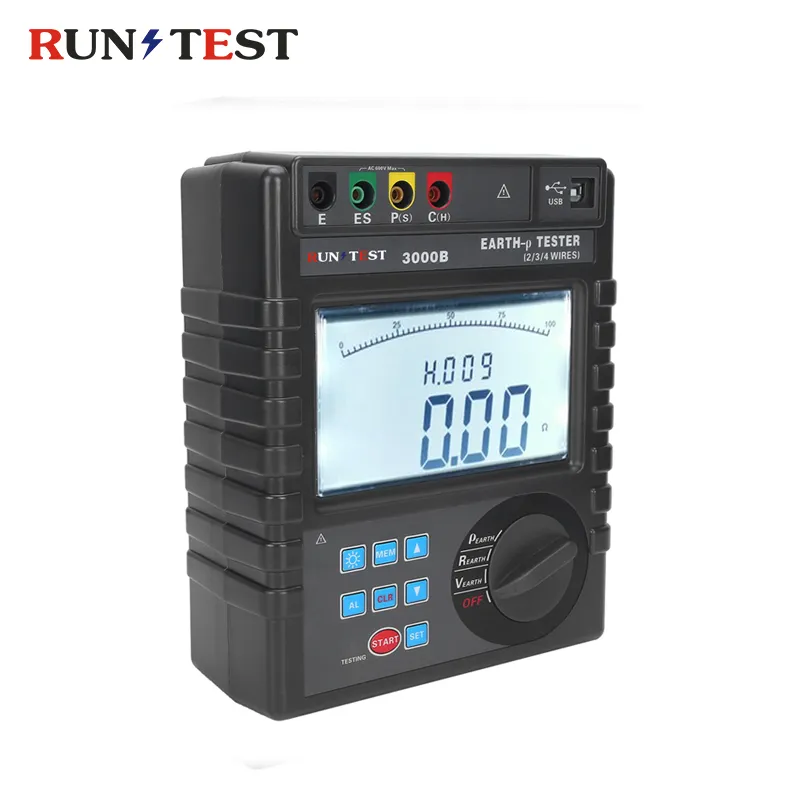
Set de test de résistance de la terre Mesureur de résistivité du sol
-

Testeur de résistance de terre à pince Mesureur de résistance de terre
-
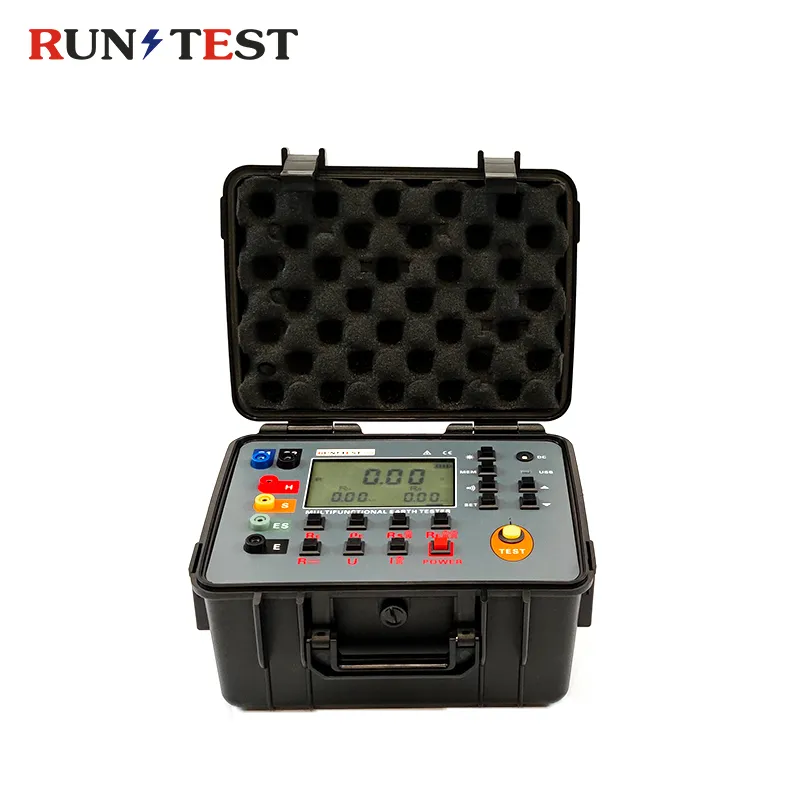
Testeur numérique multifonctionnel de résistance de terre
-
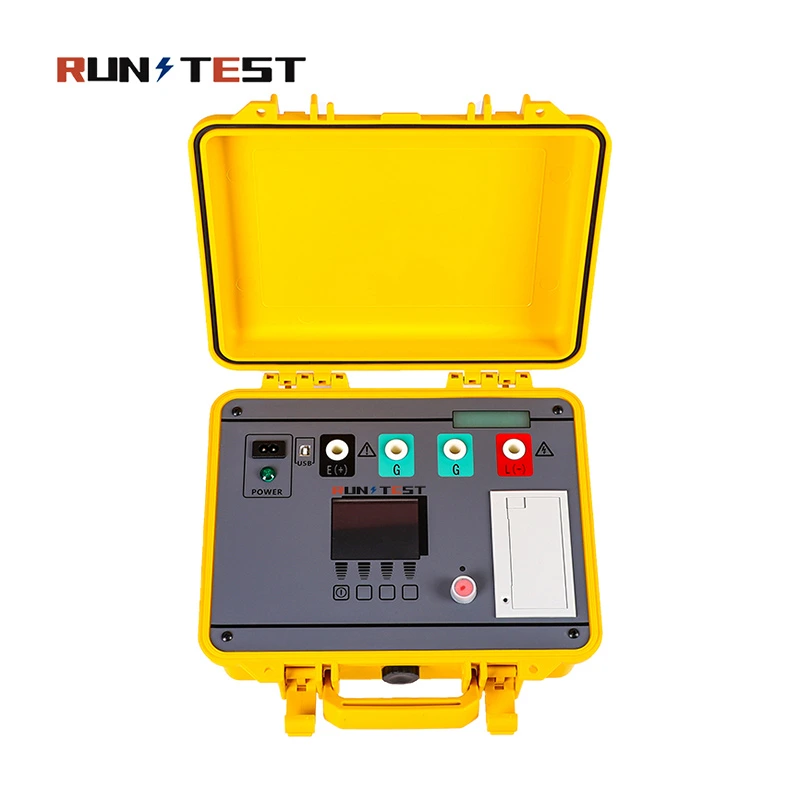
Testeur de résistance d'isolation intelligent haute tension 15kv à prix direct d'usine
-
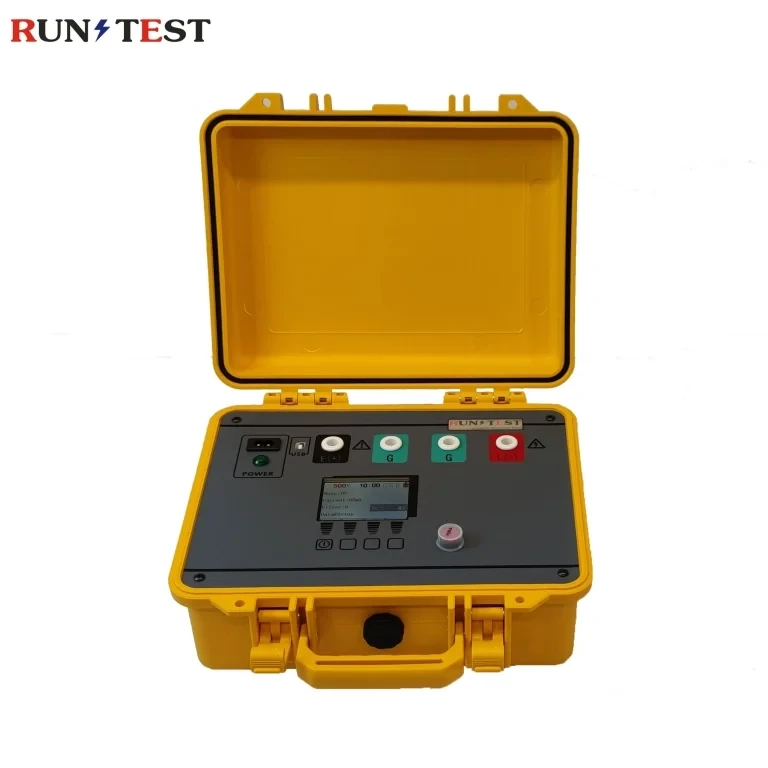
10kvTesteur numérique de résistance d'isolement haute tension Produit
-
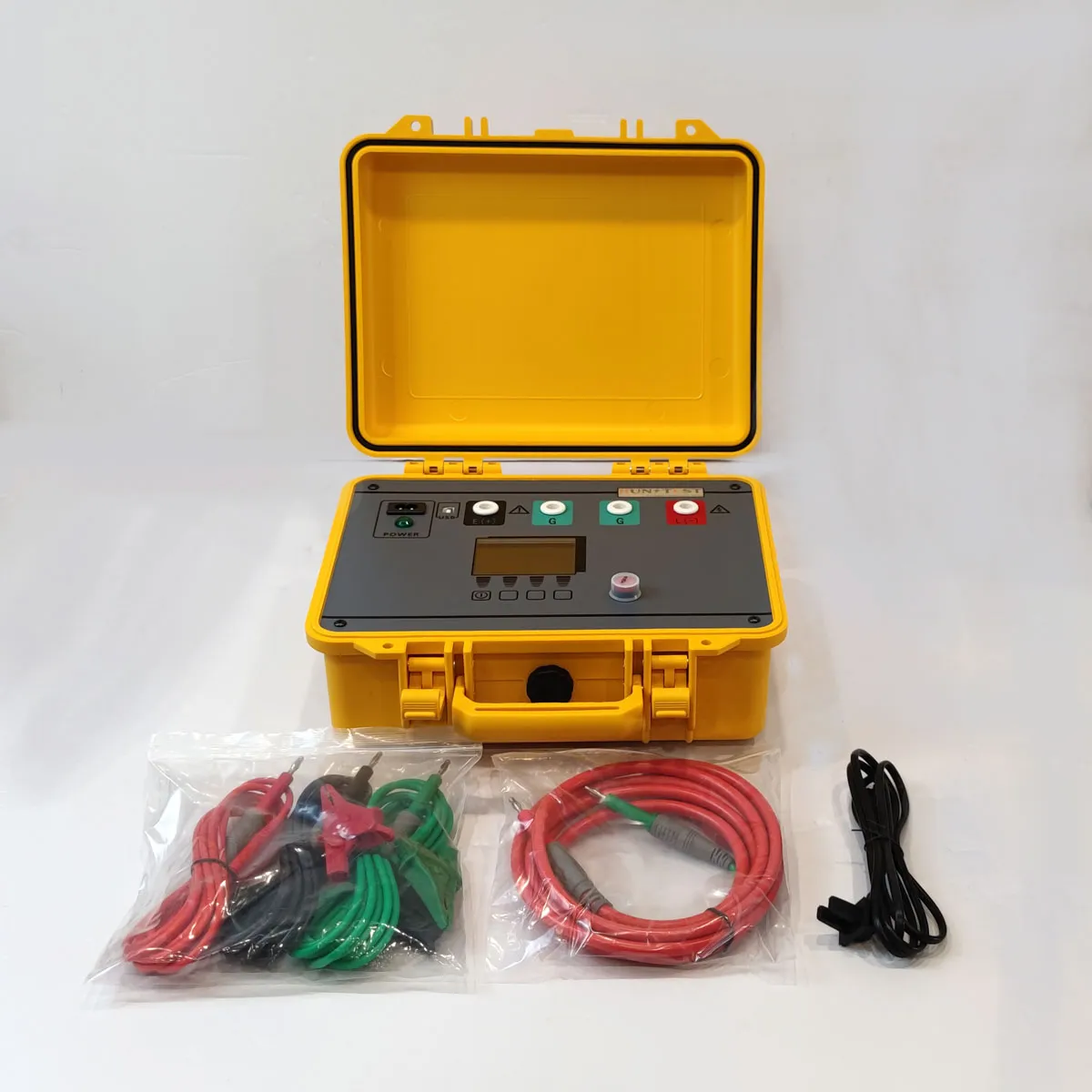
Testeur de résistance d'isolation 20kV
-
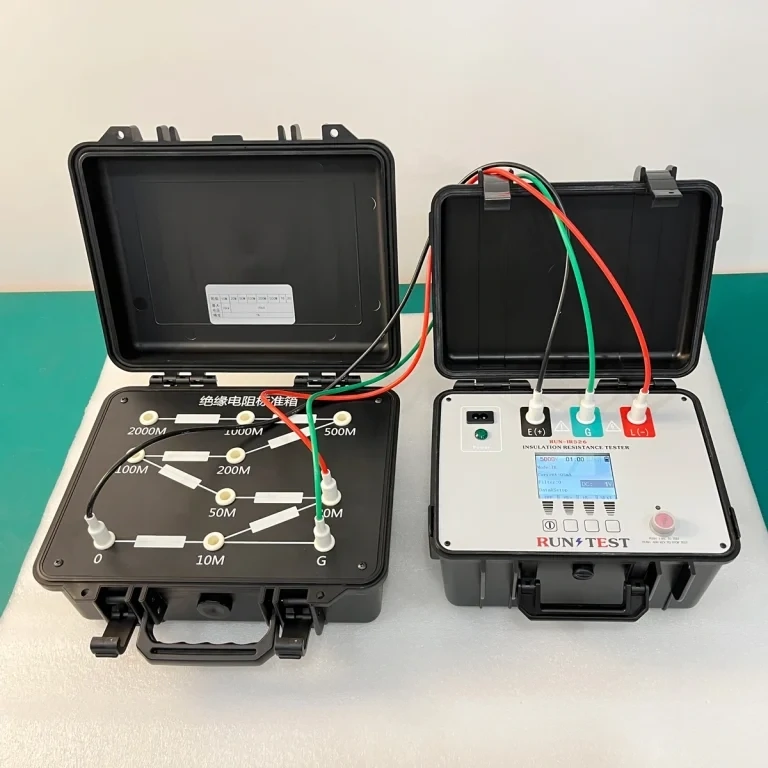
Testeur de résistance d'isolation 10kv avec imprimante
-
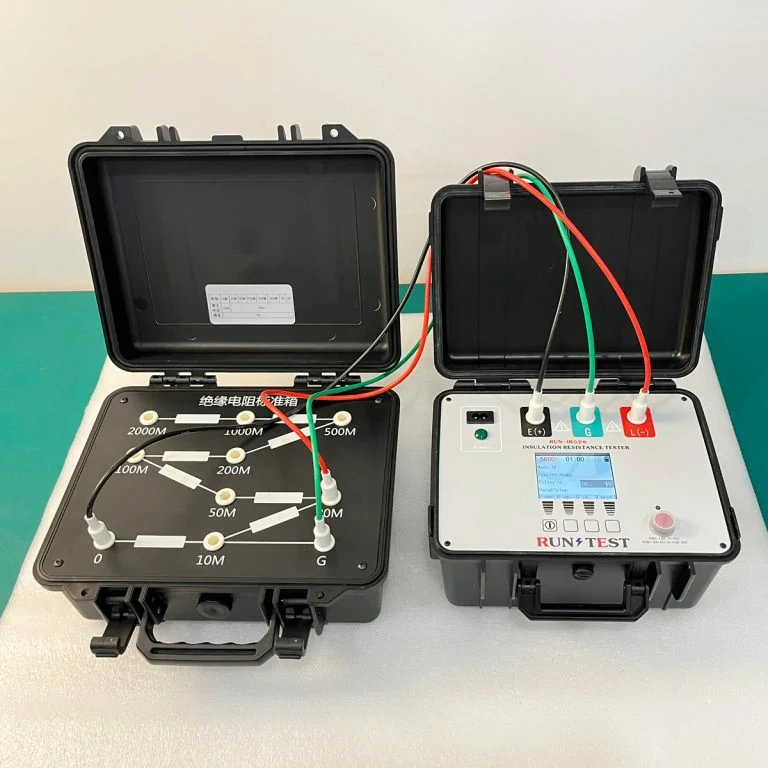
Testeur de résistance d'isolement haute tension 5kv
-
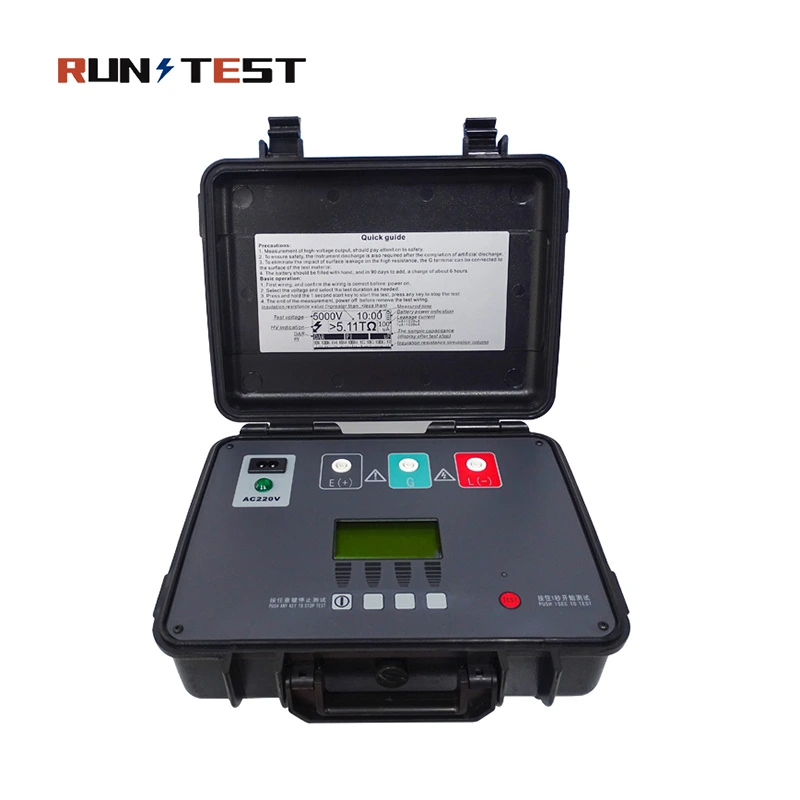
Testeur numérique de résistance d'isolement à haute tension 5kv
Types of Resistance Tests in Electrical Testing:
Purpose: Measures the resistance of the insulation surrounding conductors to ensure it is high enough to prevent leakage currents.
Purpose: Determines the resistance of the grounding system, ensuring that electrical faults can be safely dissipated into the earth.
